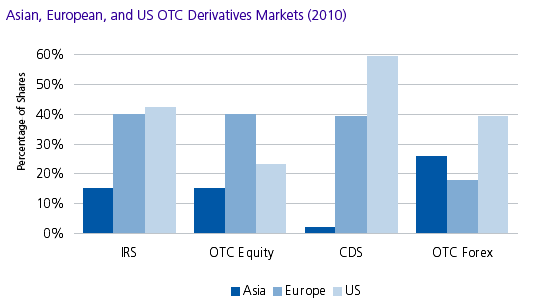OTC Derivatives Reforms in Asia: Challenging for the Buy Side
Abstract
The leading Asian economies have been quite active in their quest for more centralized clearing in the over-the-counter (OTC) derivatives markets. Japan and Singapore have taken the lead in setting up clearinghouses to deal with OTC derivatives such as credit default swaps and interest rate swaps.
In a new report, OTC Derivatives Reforms in Asia: Challenging for the Buy Side, Celent studies the move to centralized clearing and its impact on market participants, including the buy side. The Asian central clearing model is going to be slightly different than the models in the US and Europe. In those markets, there are norms for the trading of standardized OTC products. Hence, it is expected that trading will take place on a regulated platform and that the CCP would undertake the clearing for such trades. In Asia, however, there are no regulations governing the move of trading to regulated platforms, and trading is still expected to happen in a bilateral manner.
The share of the Asian OTC derivatives market in global notional outstanding is around 15% for both OTC equity derivatives and interest rate swaps. It is only 2% for credit default swaps, which are not very popular in Asia. Finally, it is 26% for OTC FX derivatives, with Japan contributing a majority of this volume.

“There are doubts over the sustainability and viability of central clearing in Asia, because there is a great deal of fragmentation,” says Anshuman Jaswal, Celent Senior Analyst and author of the report. “The existence of multiple jurisdictions could lead to regulatory arbitrage.”
This report provides an overview of OTC derivatives market conditions, traded volumes, and structure. This is followed by an assessment of the impact of the changes in the Asian context. The report also looks at the IT and connectivity issues. Finally, we delineate the future implications for the OTC derivatives market.

